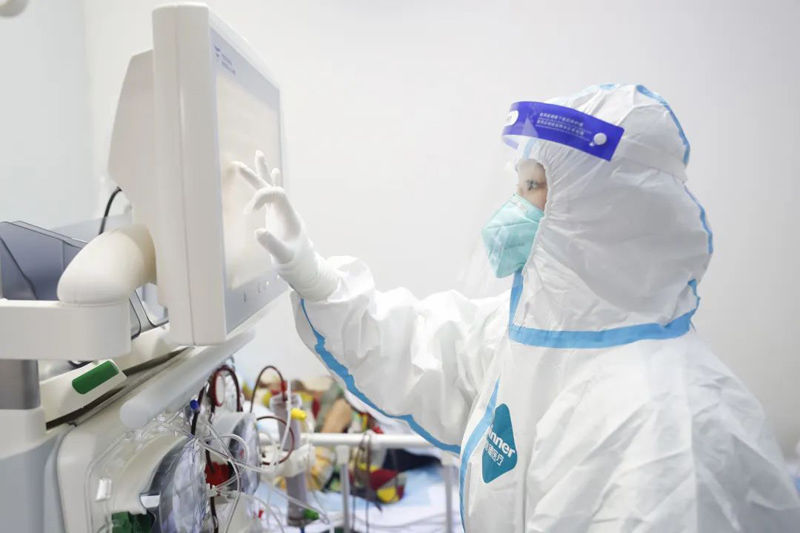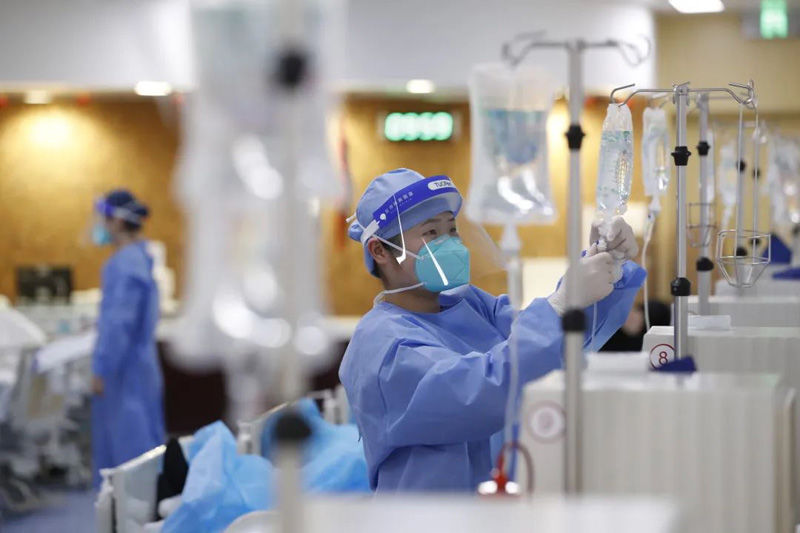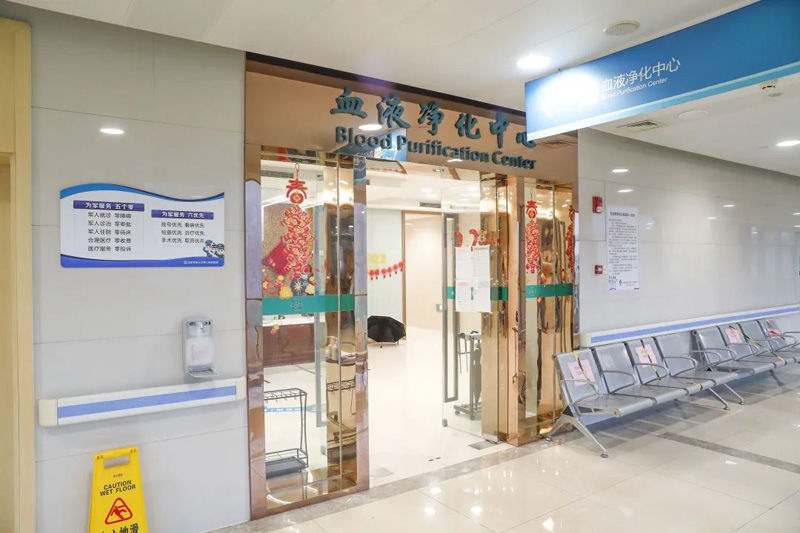This article is reprinted from: People’s Daily Online
People’s Daily Online, Shanghai, April 15 (Tang Xiaoli) For hemodialysis patients, regular dialysis is life. Once dialysis is interrupted, life will be a worry at any time. Since the outbreak of the current round of the epidemic in Shanghai, the Blood Purification Center of the Department of Nephrology of the Third Affiliated Hospital of Naval Military Medical University has made every effort to ensure the treatment needs of the original dialysis patients, and also accepts patients from closed communities. The special blood purification tasks of the whole hospital have increased year-on-year. up to three times.

The blood purification center of the Third Affiliated Hospital of Naval Military Medical University runs all night
To alleviate the epidemic In order to meet the emergency hemodialysis needs of patients in closed and controlled communities and patients with close and sub-close contact, the hospital urgently purchased multiple sets of hemodialysis equipment, and quickly built an emergency hemodialysis room that can accommodate 4 patients at the same time in only 72 hours.

Anting Hospital Emergency Hemodialysis Room
As a “fast track” of life, The emergency hemodialysis room adopts closed-loop management throughout the entire admission process. Before each dialysis, patients are uniformly guided by medical staff to conduct nucleic acid sampling in designated areas, and the inspection department races against time to issue inspection reports.
This can not only ensure that special patients receive timely and effective treatment, but also isolate them from routine dialysis patients during the entire process of admission, so as to reduce the possible risk of infection.

When working in the emergency hemodialysis room, medical staff need to implement three-level protection, and they must accompany the patient 4-6 times. A series of tasks such as observation of hemodialysis and replacement of replacement fluid can be completed within hours.
Faced with many uncertainties under the epidemic, the hospital opened up a dedicated channel for routine patients and set up an independent nucleic acid testing site while opening the emergency hemodialysis room. 39 conventional dialysis beds are operating at full capacity. Serving nearly 200 permanent dialysis patients.
In such a special period, all the medical staff of the Nephrology Department stick to their jobs day and night, from hemodialysis on the machine to disease assessment, from puncture and injection to treatment records, they work hard every day, and they are isolated after get off work. Clothes are soaked.

In order not to delay the normal on-boarding of patients, after the end of the day’s hemodialysis work, they will also conduct dialysis patients the next day.
Regarding the closure and control situation in the place of residence, we will conduct repeated investigation and statistics, and maintain close communication with the community in order to arrange treatment more efficiently.
During the waiting period of the patient, the medical staff will also, according to the individual situation, relieve the patient’s nervousness and inform the patient of relevant precautions, such as how to control the diet and water intake, etc., to help the hemodialysis patient to pass the waiting period smoothly.

Defending the lifeline of hemodialysis, in this “suspended” city, the people’s military doctor resolutely shouldered the mission. (Photo courtesy of Naval Medical University)